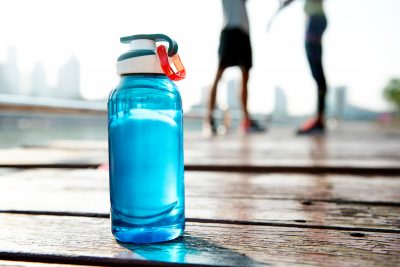Jet Lag is a sleep disorder associated with traveling across multiple time zones. Your body has a natural internal clock, commonly known as a circadian rhythm It tells you when it is time to be awake and when it is ready to go to sleep. When you disrupt this cycle, your body is essentially in a state of confusion because your body is still on your normal schedule. This can cause symptoms of fatigue, upset stomach and sleep disruption which can affect your concentration and productivity and mood. Fortunately there are steps you can take to transition into the new pattern and alleviate the symptoms of jet lag.

Preparation
Before you travel, you should try to get into the schedule/routine that your body will be in when you arrive at your destination. Depending on the direction you’re traveling, you’ll want to try to get to sleep and wake up earlier if you’re traveling east or later if you’re going west, and adjust your meals accordingly. It takes time for your body to adjust to a new schedule. Beginning preparation several days ahead of time could make your adjustment much easier. Once you arrive, you will be putting less of a shock on your system and will allow for a much smoother transition into the new schedule.
Additionally, you can use what is called phototherapy and other tips to help combat jet lag.
Lightness & Darkness
Our circadian rhythm, that internal clock that we have which tells us when it is time to be awake and when we should be sleeping, is also highly influenced by light. Daylight can provide us with energy, causing us to feel more awake and alert while darkness can lead to the release of melatonin, which is a hormone that tells us that it is time to sleep. Being outside or letting natural light during the day is helpful to staying awake while turning off artificial lights, including your television and phone, to make it darker is recommended to help in making us more tired.
Hydration
Staying hydrated is of the utmost importance for your overall wellbeing, so it should go without saying that becoming dehydrated will only contribute to your jet lag and make your symptoms that much worse. Drink plenty of fluids like water or sports drinks will keep you hydrated and your body functioning properly. Try to avoid alcohol or drinks with caffeine, such as coffee or tea. The effects that alcohol and caffeine have on the body are short-lived and can actually dehydrate you and lead to fatigue and increase other symptoms of jet lag. If you aren’t already in the habit of staying hydrated, it is a good idea to incorporate this into your preparation and try to maintain throughout.

Diet
Your diet/nutrition plays a large part in your body’s natural cycle and can affect the amount and quality of your sleep, so it is important to stay on top of what you eat, how much you eat, and when you eat it. Food with a higher protein content will give you a bit more energy and help you stay awake, so it would be more helpful to eat them earlier in the day. Carbohydrates tend to make you feel tired or drowsy, so they would be better suited as a dinner meal. Remember that food is your fuel, so not eating enough will cause you to run out of energy and eating too much could make you feel more sluggish and tired: moderation is key.

Melatonin
Our body naturally releases melatonin to tell us that is it time to sleep. Melatonin is available as a supplement to further aid in adjusting to jet lag. It is more gentle than taking a sleeping pill, which can cause you to feel groggy and even lest rested.
By preparing yourself and following these guidelines you can transition yourself into your new schedule and lessen the effects of jet lag. Maintaining healthy habits such as staying hydrated and proper nutrition will help with your overall well-being and reduce and symptoms that you may experience. Staying in tune with your body’s natural cycle and adjusting it properly will further aid in fighting jet lag and lead to a more comfortable transition.


